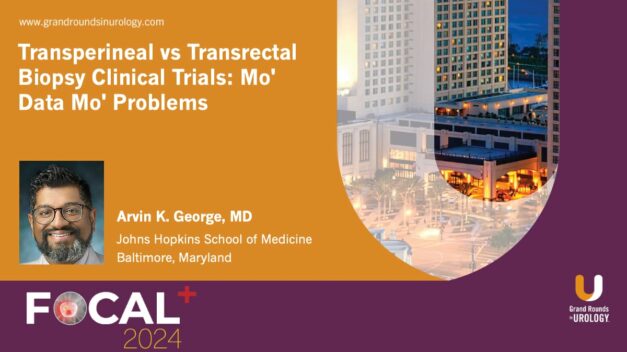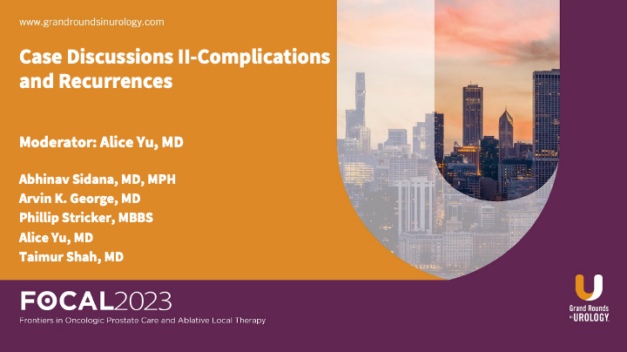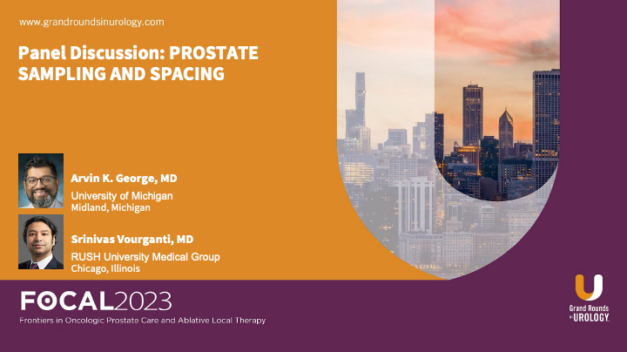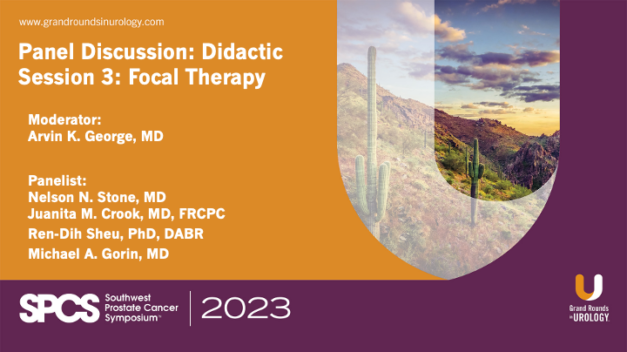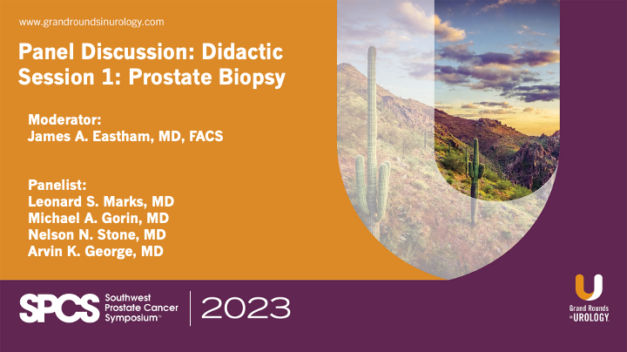Transperineal vs Transrectal Biopsy Clinical Trials: Mo’ Data Mo’ Problems
Arvin K. George, MD, delves into the nuances of prostate cancer biopsy techniques, focusing on the comparison between transperineal and transrectal approaches.
In this 14-minute presentation, Dr. George shares that transperineal and transrectal biopsies demonstrate equivalent cancer detection rates, particularly for clinically significant prostate cancer. However, some retrospective data suggest potential advantages of transperineal biopsy in specific anatomical areas, with notable studies emphasizing the reduced risk of infections with transperineal biopsy. Dr. George also discusses a decreased need for antibiotics and the use of local anesthesia in a transperineal approach.
Further, Dr. George reflects on the implications for clinical practice, antibiotic stewardship, and cost-effectiveness for transperineal and transrectal approaches. His talk provides a comprehensive synthesis of current evidence, encouraging a balanced and thoughtful approach to biopsy method selection.
Read More
